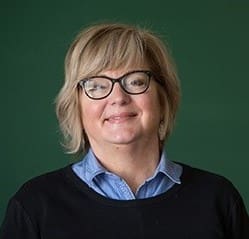‘Active Listening is Paramount.’ Member Spotlight: Dr. Beverly Ross
A family mediation expert, Dr. Beverly Ross, has identified active listening as a critical factor to successful mediation. According to her, “cautionary and deliberate” listening is paramount to mediation of all types and forms. She believes a demonstrated willingness to listen helps all sides to focus on carving out an effective solution to a simmering tension or dispute.
Speaking in an interview with MBBI on August 24, 2018, Dr. Ross reasoned that:
In an effectively conducted mediation, wherein both sides are made to sit down and are exposed to each other, they learn to listen and are forced to confront their faulty beliefs about one another. Actively listening rather than waiting to respond or to have the last word helps [conflicting parties] gain insights into what [either side] is thinking and what their experiences are.

Dr. Ross stresses the need for active listening at all times
She cited South Africa’s approach to peace-building through dialogue and active listening as an excellent example of the benefits of active listening in mediation. South Africa has a protracted history of racial injustice and gross human rights violations.
In its search for sustained peace, it “established Truth and Reconciliation Commission (TRC) which goes a long way [in ensuring] group stability and harmony,” added Dr. Ross. The South African TRC heard the stories of both victims and perpetrators of violence and became a crucial component of that country’s transition to full democracy. This is something, Dr. Ross added, North Ireland struggled to accept; hence, a protracted conflict between the Catholics and Protestants still lingers.
The bottom line is that mediation flourishes on active listening. It provides the opportunity to hear the story of the other side, she further noted.
If we remain closed off from each other, we tend to hold onto stereotypes and negative perceptions. But once we are exposed to somebody that is different than us, our predetermined perceptions are challenged. We are more likely to be accepting of somebody that we have face-to-face exposure with.
Dr. Ross has several years of practical experience as a mediator. She is a staunch believer that mediation:
- Challenges us to see things from a different perspective
- Bridges existing gaps by sitting parties down and providing them with the opportunity to share their views
- Attempts to restore power balance by amplifying the voices of those who may not have had a say prior to the mediation
- Provides a priceless chance to change the dynamics of the conflict or the approach to addressing it—for example, TRC
Family Mediation
For several years Dr. Ross has mediated family disputes of all types, sizes, and forms. Throughout her career, she has realized that “getting the parents to recognize that their dislike for each other is really having a long-term impact on their children” is the stickiest part of her job. Though she manages to get some parents to come to terms with this fact, there are others who make this a “frustrating” experience for her.
However, Dr. Ross believes that there are multiple factors that contribute to the dynamics of a conflict. Thus, “you have to take a holistic approach to understand the various factors that impact the behavior(s) or personalities of parties to a conflict. Also, “the resolution that you come up with needs to [effectively] address those underlying factors or variables.”
She identified the entrenched role of culture in conflicts as one thing that is easily overlooked by mediation practitioners. “We fail to consider how important culture is to conflict [dynamics] and the way in which we address the conflict or our attempts to mediate it,” she noted. Culture, she said, ought to be critically considered when mediating a conflict.
Affiliation with MBBI
Meanwhile, Dr. Ross feels a “personal” passion for helping people to have conversations with each other. It is this desire for resolving disputes or simmering tensions through dialogue that attracted her to MBBI. She is a member of MBBI’s Children and Youth Alternative Dispute Resolution Working Group (C & Y ADR) through which she presented on the “Origins and Consequences of Family Conflict and How Antagonism Adversely Impacts Children.” She became a member about a year ago and is happy to have made that choice. She described her membership with MBBI in these words:
I have had very positive experiences and exchanges. I was able to go to the conference last Fall. That was amazing. I got to meet with lots of different people. Really, one of the pivotal moments of that conference was knowing that I share similar interests (the conflict in Northern Ireland) with some the participants. I met and chatted with Padraig O’Malley.
An article by Fatoumata Fofana Bility, MBBI Writer
